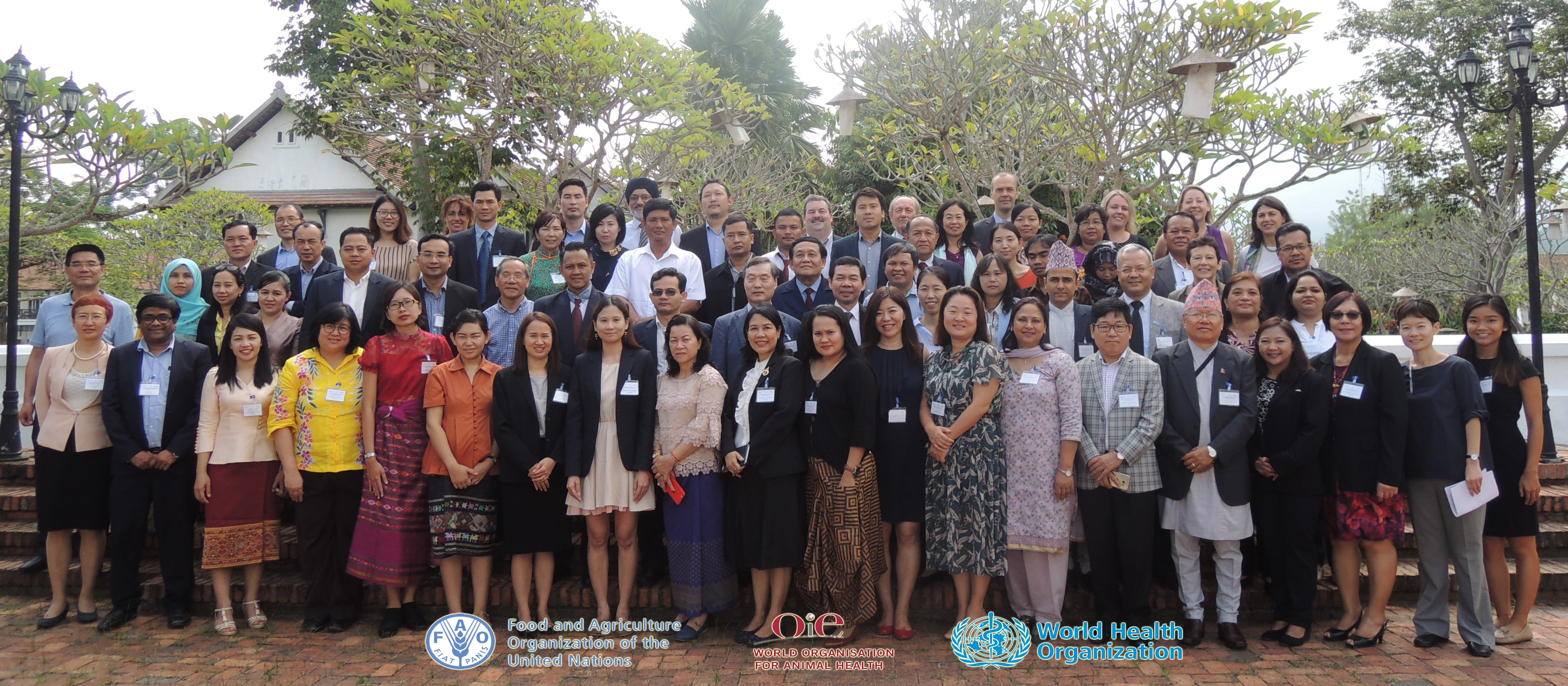


A “Meeting to Accelerate Prevention and Control of Neglected Foodborne Parasitic Zoonoses in Selected Asian Countries” was held in Luang Prabang, Lao People’s Democratic Republic on 16-18 October 2018. In addition to nine temporary advisors, the meeting was attended by 40 national focal points of neglected tropical diseases, animal health, food safety and water, sanitation and hygiene programmes from 14 countries; representatives from seven partner agencies; and 16 representatives from the World Health Organization (WHO), Food and Agriculture Organization of the United Nations (FAO), and the World Organisation for Animal Health (WOAH, founded as OIE) at the global, regional and country levels.
The meeting provided valuable opportunities to bring together different sectors involved in the prevention and control of neglected foodborne parasitic zoonoses – public health, animal health, food safety and WASH. The meeting participants shared insights, experience and updates on new guidance and development to accelerate prevention and control of neglected foodborne parasitic zoonoses, particularly taeniasis/cysticercosis, echinococcosis and foodborne trematode infections. The meeting also included a field trip to a local pig slaughterhouse, a fish and meat market, and a community where pigs are raised at the household level. These visits illustrated the reality of animal production, food safety and hygiene practices in rural communities in Asia. The meeting also provided an opportunity to develop the first sets of food safety risk communications, and country-specific action plans to accelerate prevention and control of neglected foodborne parasitic zoonoses.
The meeting participants agreed to strengthen political commitment through high-level advocacy and push forward with cross-sectoral collaboration to develop a multisectoral road map to accelerate prevention and control of neglected foodborne parasitic zoonoses. They were also encouraged to identify practical, feasible and cost-effective interventions and monitoring and evaluation approaches for assessing impacts of interventions in the local context and explore opportunities for aligning implementation with ongoing programmes or activities.
The FAO-WHO-WOAH Tripartite was requested to continue providing technical support and guidance and facilitate cross-sectoral collaboration among public health, animal health, food safety and WASH sectors at national and regional levels by identifying and engaging relevant partners to accelerate prevention and control of neglected foodborne parasitic zoonoses, and develop a network for the control of neglected foodborne parasitic zoonoses to facilitate sharing of experience across countries.
The objectives of the meeting were:

